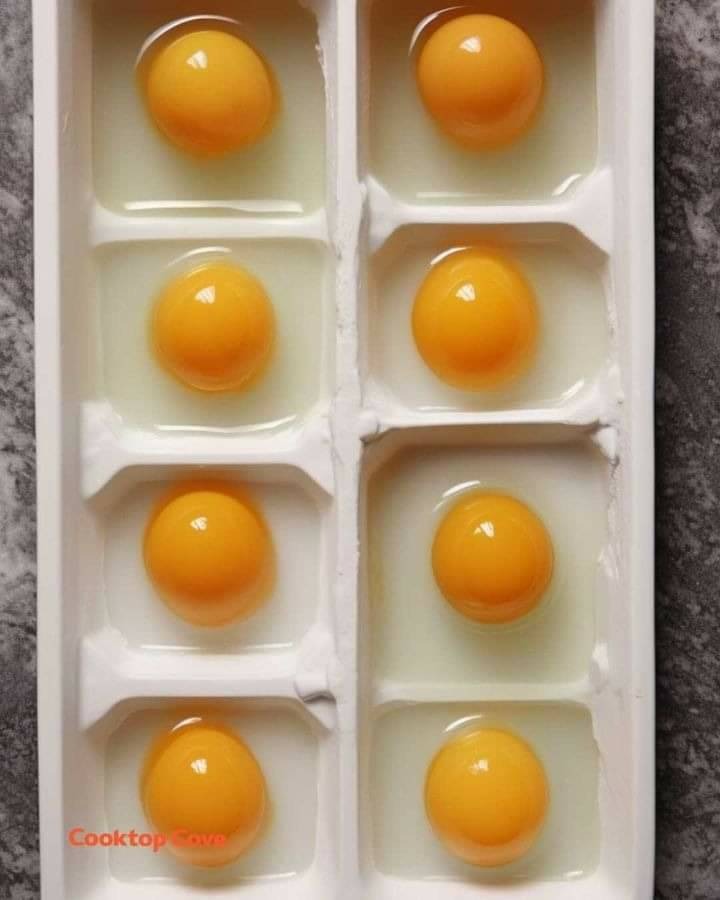You can ensure you always have eggs on hand by purchasing them in quantity and then freezing them. When you need to make dinner last minute or have unexpected company, this can be a lifesaver. You won’t have to go to the store as often to get more eggs because of this.
Increased durability
Egg freezing is possible, despite common assumption to the contrary. Refrigerated eggs only last about three to five weeks, which isn’t very long. Nonetheless, they retain their quality for at least six months and perhaps longer when properly frozen. By doing so, you can ensure you never run out of fresh eggs and reduce food waste.
Egg freezing methods
To freeze eggs, simply follow these steps:
1. Crack an egg into each ice cube mold. One egg should fit in each of the slots.
2. After placing the tray in the freezer, allow the eggs to freeze completely.
The third step is to transfer the egg pieces to a freezer-safe container or bag once they are frozen. Remove them from the tray. Mark the container with the date for future reference.
Uses of frozen eggs
Eggs must be thawed before they can be used. Several approaches can be used in this regard:
Let the egg cubes thaw at room temperature by placing them in a bowl.
The refrigerator contains: Let the frozen egg pieces thaw in the refrigerator for at least 12 hours, or overnight if possible.
Soak in cold water: Place thawed egg whites in a plastic bag and seal it. Then soak it in cold water. Once every half hour, or until the eggs are thawed, change the water. This normally only takes a few hours, and it’s much quicker than using the refrigerator.
Use your microwave’s defrost or low power option to quickly thaw frozen eggs if you’re in a hurry. Eggs can be partially cooked if you’re not careful, so be sure to keep that in mind.
How to Use Thawed Eggs in Recipes
ADVERTISEMENT

